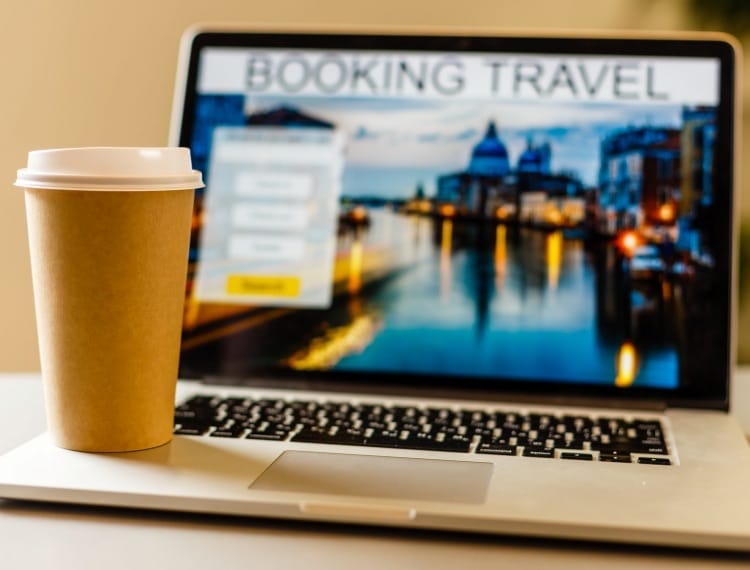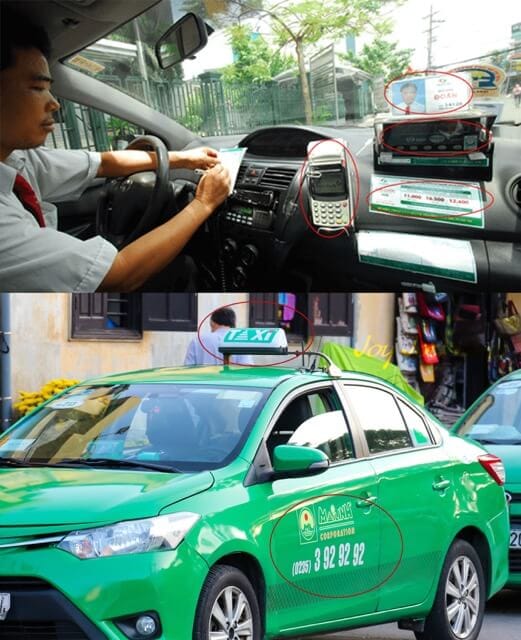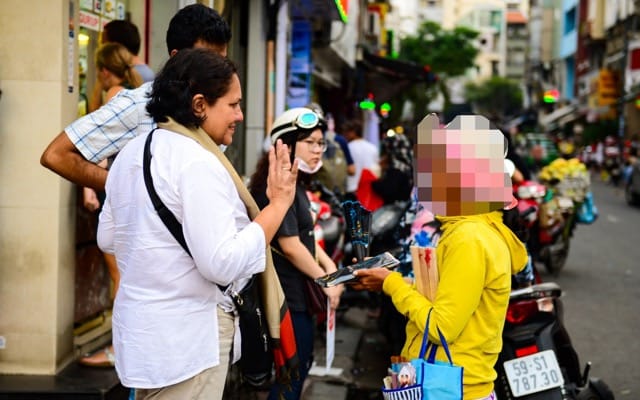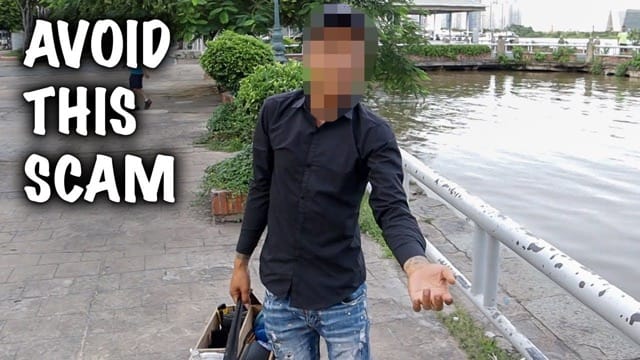If you’re planning a trip to Vietnam, it’s important to be aware of the potential scams that target unsuspecting visitors. Unfortunately, Vietnam scams are common and can ruin an exciting and memorable trip.
To avoid falling victim to these scams, knowing what to look out for and how to protect yourself is important. From misleading tour guides to overpriced goods, here are some tips to help you spot and avoid common Vietnam scams during your travels.
Contents
Common Vietnam Scams: Awareness and Prevention
Visiting Vietnam is an unforgettable experience, but as with any travel destination, tourists must be vigilant against common scams.
One prevalent scam in Vietnam is the fake tour guide, where scammers pose as tour guides to take advantage of tourists by overcharging or not delivering on their promises.

Another is the misleading pricing tactic, where tourists are charged more than the actual price for goods or services.
Taxi scams are also common, with drivers overcharging or taking passengers on longer routes to inflate the fare.
Scams at tourist destinations, such as fake tickets, closed attractions, and pushy vendors, are also something to be aware of.
Additionally, visa scams can occur when travelers are asked to pay extra fees or are given false information about obtaining a visa.
Researching and staying alert are important to avoid falling victim to these Vietnam travel scams.
Get to know Vietnam customs regulations to protect yourself
How to Safeguard Yourself from Scams While Traveling in Vietnam?
When traveling in Vietnam, taking precautions is important to avoid falling victim to scams.
Avoid using unregistered and unofficial services such as unlicensed tour guides and taxi drivers to protect yourself. If necessary, ask for confirmation of identification or business licenses from service providers.

Keep your personal belongings secure, such as cash, credit cards, mobile phones, and tablets, and use luggage locks to protect your belongings.
To avoid falling for scams such as counterfeit goods, it’s crucial to learn about local customs and cultural practices before shopping or interacting with locals.
When purchasing products or services, it’s essential to differentiate between quality and inferior options. To avoid scams, do your research and be cautious when making a purchase.
Understanding the differences between a quality product or service and an inferior one can help you avoid any potential scams and ensure that you receive fair value for your money.
By educating yourself, you can make informed decisions that will save you both time and money in the long run.
Negotiating prices can be daunting, especially when traveling and unfamiliar with local customs. To avoid overcharging, it’s important to do your research beforehand and get a sense of fair prices for goods and services.
Don’t be afraid to negotiate and offer a lower price, but be respectful and considerate of the seller’s time and effort.
Understanding police role in vietnam to protect yourself from scams.

It’s also important to stay alert and be cautious to prevent scams. Trust your instincts and avoid any situation that seems too good to be true.
Be wary of overly pushy sellers or individuals who try to lure you into a secluded area. If you encounter any suspicious behavior, refuse and seek assistance.

If you fall victim to a scam, report it immediately to local law enforcement or a tourism management agency for assistance resolving the issue. By staying informed and aware, you can enjoy your travels in Vietnam without falling victim to scams.
Reporting Scams: Resources and Agencies in Vietnam
Unfortunately, Vietnam, like many popular tourist destinations, deals with scams made by locals preying on tourists.
However, finding the right organization or government agency to report these incidents can be daunting, so it’s important to arm yourself with knowledge before embarking on your travels.
The police in Vietnam take scam reports seriously, and tourists can contact the police by calling the emergency hotline number 113.
Additionally, the Vietnam National Administration of Tourism has implemented a program that aims to reduce tourism scams, providing valuable information on how to spot and avoid them and encouraging tourists to report incidents to the authorities.
To report tourism-related scams, tourists can contact the Vietnam National Administration of Tourism by calling +84 24 3942 3760 or emailing tccdl@vietnamtourism.gov.vn. By familiarizing yourself with these resources and taking action, you can help make a difference on your next trip to Vietnam.
By reporting scams, you can protect other travelers from falling victim to the same traps.
Being vigilant and reporting incidents will not only keep you safe but will also help the authorities to take action against scammers.
Remember, if something seems too good to be true, it probably is. Don’t hesitate to contact the authorities if you suspect a scam or have fallen victim to one yourself. By working together, we can keep each other safe while enjoying all that Vietnam offers.
Sharing experiences is an essential aspect of promoting safer travel practices.
When individuals share their experiences, they provide invaluable insights into the joys and potential dangers of traveling.
The key is to provide relevant information that helps other travelers make informed decisions about their journeys.
This could include anything from sharing tips on avoiding pickpockets in crowded tourist areas to recommending emergency medical services in a foreign country.
By highlighting real-world experiences, travelers can learn from each other and make smarter decisions about their travel plans. This type of knowledge exchange makes travel safer, more enriching, and, ultimately, more enjoyable.
Stay safe on your trip by getting vaccinated.
Conclusion
Overall, it’s important to stay aware and informed when you’re traveling in Vietnam. Knowing the common scams in the country and how to protect yourself will help ensure that your travels remain safe and enjoyable.
Furthermore, actively reporting and seeking help if you are scammed can help keep other travelers safe as well. If you feel like you have been a scam victim, contact your consulate or embassy for advice, or consider filing a police report for more severe issues.
Remember: knowledge is power—keeping apprised of scams could save you time, money, and energy while traveling in Vietnam!


Related Posts
Review Vinh Trang Pagoda: A My Tho Architectural Gem
Nestled in the heart of My Tho City, Vinh Trang Pagoda stands as one of the most magnificent and historically significant religious sites in the Mekong Delta region. This architectural masterpiece, with its unique fusion of Eastern and Western design elements, has captivated visitors for years. As one of the premier My Tho attractions, the […]
10 Best Things To Do In My Tho – Mekong Delta
My Tho, the charming capital of Tien Giang Province, serves as the perfect gateway to the enchanting Mekong Delta region. Located just 70 kilometers southwest of Ho Chi Minh City, this riverside city offers visitors an authentic taste of Vietnamese rural life, where ancient traditions blend seamlessly with modern tourism. When exploring things to do […]
Ho Chi Minh To Mekong Delta: Best Transport Options Guide
The journey from Ho Chi Minh to Mekong Delta offers travelers an exciting transition from Vietnam’s bustling commercial capital to the tranquil waterways and lush landscapes of the country’s agricultural heartland. This comprehensive guide explores all transportation options available for reaching the Mekong Delta, helping you choose the best method based on your budget, time […]